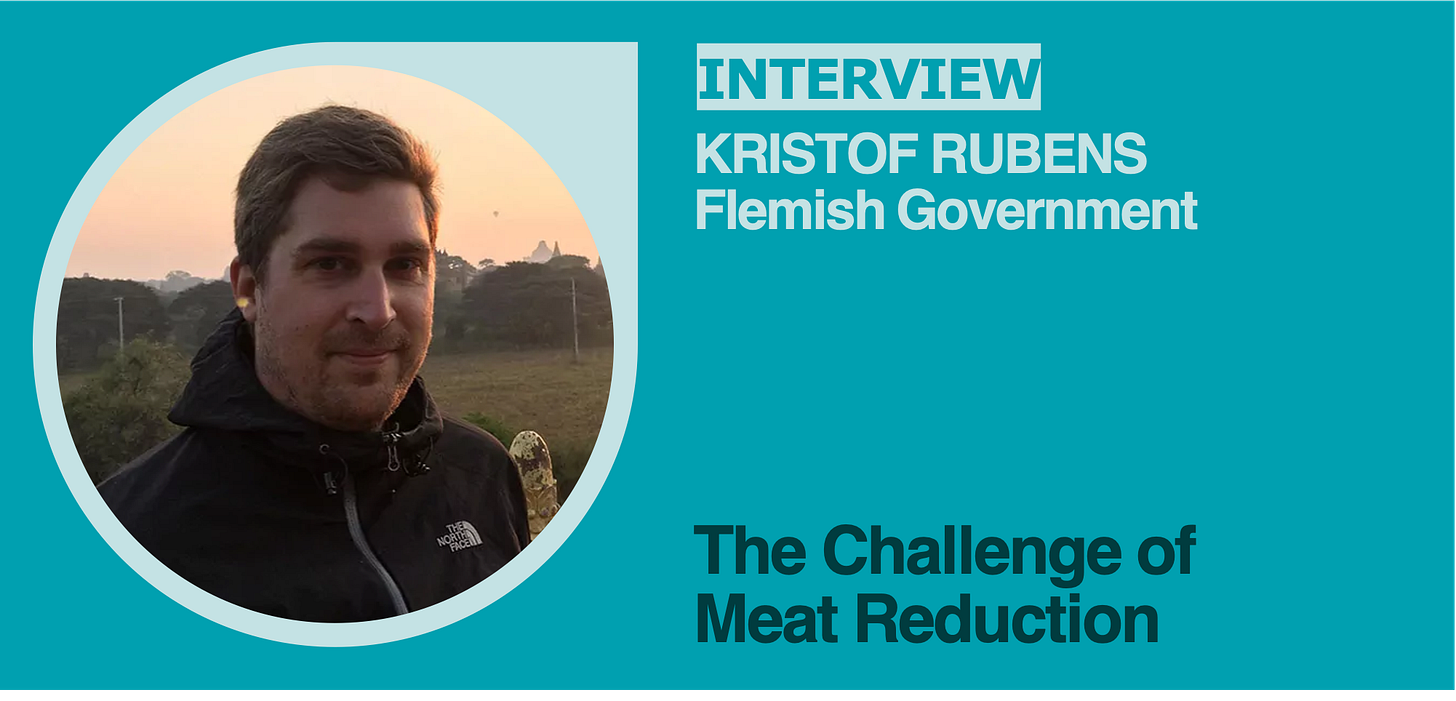GOOD MOVES #6: Sustainable Diets
Hi everyone,
They both work on sustainable food consumption and use behavioural interventions to help people make healthier and more sustainable food choices. One is a senior researcher at the University of Oxford and the other is a policy advisor at the Flemish Government.
This month, we interviewed Brian Cook and Kristof Rubens about a topic that we find particularly important: sustainable diets. How can we motivate people to reduce their meat consumption? How can we encourage people to adopt plant-based diets? What are the most promising interventions? These are the questions that Brian and Kristof have kindly answered for us.
This episode of Good Moves is also an opportunity for us to introduce a piece of content we've been working on throughout the summer: a report looking at behavioural interventions to encourage the consumption of plant-based diets.
The interest in plant-based diets has increased in the last decade. Big players like Nestlé and Cadbury’s have made it an innovation priority. And the recent example of the Danish government’s investment in the research and development of plant-based foods will surely inspire others.
However, such efforts will fall short without consumer acceptance and behaviour change. The good news is interventions based on behavioural science offer an opportunity to overcome the barriers that currently prevent the wider and faster adoption of plant-based diets, especially in the global north. Read more about our ‘Behavioural Science of Plant-Based Diets’ report below.
Enjoy Good Moves and stay sustainable,
The Behaven team
P.S.: If you would like to become a Good Moves contributor, share your experience or write about behavioural sustainability, contact us.
Ecolabels and Other Tools to Promote Sustainable Diets
Brian Cook, from the Livestock, Environment and People (LEAP) project at the University of Oxford talks about his work on the impact of behavioural nudges on food consumption choices, and the strengths and weaknesses of ecolabeling he’s been able to observe so far.
The Challenge of Meat Reduction
We interviewed Kristof Rubens, from the Department of Environment & Spatial Planning of the Flemish Government, about his recent experience with meat reduction initiatives and using ‘hard’ and ‘soft nudges’ in a context where dealing with stakeholders can be a challenge in itself.
The Behavioural Science of Plant-Based Diets
Today, our food systems contribute to 34% of all greenhouse gas emissions. Of these emissions, 57% is associated with animal-based food production and 29% with that of plant-based foods. Encouraging the consumption of plant-based foods is, therefore, of critical importance to move towards a sustainable future.
While innovation and technology are contributing to this shift, these efforts fall short without behaviour change and consumer acceptance. And since ‘food’ is of emotional importance, changing food behaviours requires an in-depth understanding of people’s needs and concerns.
This is why we have produced an evidence-based report looking at insights and interventions from behavioural science to encourage the consumption of plant-based diets.
Following a scientific literature review, we present 31 barriers and enablers, and 31 interventions to facilitate behaviour change in the consumption of plant-based diets.
Additionally, we have reviewed a few key plant-based food campaigns where we break down the behavioural science behind them, highlighting the need for science-based approaches in behavioural challenges.
In the course of the coming weeks, we will be sharing more details about these insights and interventions on Behaven’s LinkedIn page. Follow us and do not miss out. In the interim, if you’d like to organise a Zoom session to discuss the report’s key learnings and recommendations, contact us at info@behaven.co.






